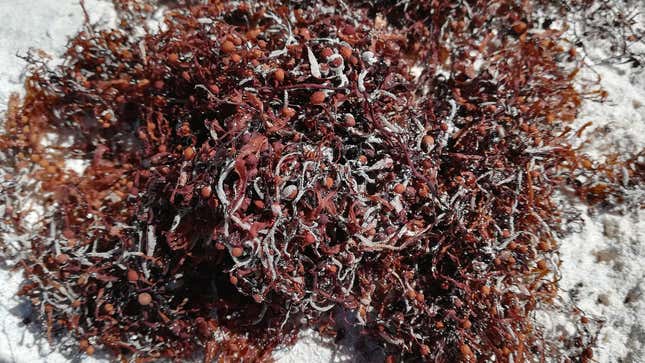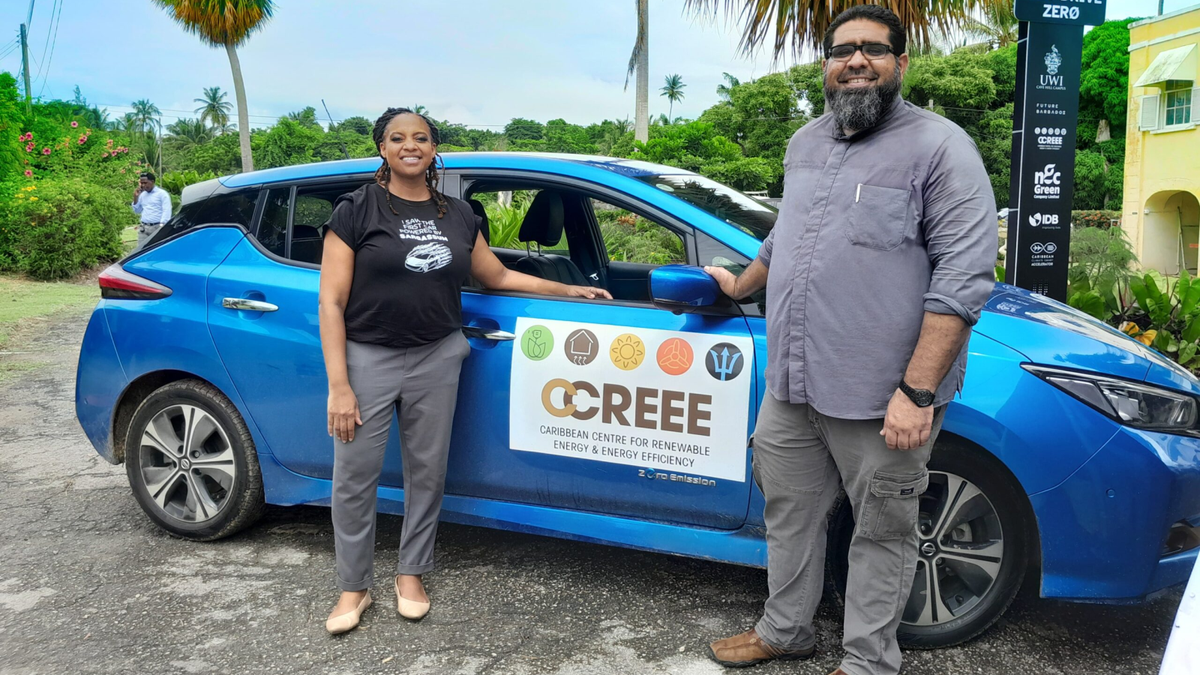A team of researchers on the Caribbean island of Barbados have been working to create a new sustainable fuel to power cars on the island. Instead of using carbon capture or recycled cooking oil, the scientists have turned to an invasive species of seaweed that is taking over the island nations.
Caribbean islands such as Antigua and Barbados are being plagued by an invasive species of seaweed that is washing up on beaches and stinking out the area as it rots, reports the BBC. Instead of letting the seaweed, which is called sargassum, break down on the beach and ruin everyone’s dream holiday, a team of scientists has now figured out how to turn the algae into a biogas.
The algae is combined with dung from a local farm and waste water from a rum distillery. Once that delicious-sounding cocktail is pumped into a fermenter, a gas is released that can then be used to power cars on the island, as the BBC reports:
They recently launched one of the world’s first vehicles powered by bio-compressed natural gas. The innovative fuel source created at the University of the West Indies (UWI) in Barbados also uses wastewater from local rum distilleries, and dung from the island’s indigenous blackbelly sheep which provides the vital anaerobic bacteria.
The team says any car can be converted to run on the gas via a simple and affordable four-hour installation process, using an easily available kit, at a total cost of around $2,500 (£1,940).
Bacteria found in the dung breaks down the sargassum inside a reaction vessel, explains Futurism. During this process, a flammable biogas is produced that researchers then collect and condense so that it can be filled into liquid gas tanks fitted to converted cars. The gas can also be used to power electrical generators, which then charge up demo vehicles like the Nissan Leaf EV pictured above.

Four cars have now been fueled up with this biogas as part of a pilot program being carried out by the University of the West Indies, with researchers hopeful that they will soon be able to scale up the project, as Futurism adds:
“Within just two weeks we got pretty good results,” UWI student Brittney McKenzie, who was tasked with collecting the seaweed, told the broadcaster. “It was turning into something even bigger than we initially thought.”
“By repurposing it in vehicles you protect tourism and prevent people from inhaling it,” biologist Shamika Spencer, who worked on the project, told the BBC. “When we scale up to fuel more vehicles it will require a very large volume.”
The process scientists developed to break down the seaweed isn’t a one-trick pony and can also be used to break down all sorts of organic materials to create biogas. In fact, the BBC adds that the UWI research was initially launched to investigate ways of creating biogas from sugarcane, which is grown across the Caribbean.
This pilot program is one of many schemes around the world investigating future fuel sources that could help us travel around more cleanly. It joins a study being funded by Porsche to create carbon-neutral fuels in Texas, and teams of researchers have also looked into using carbon captured from the atmosphere to power our cars.

